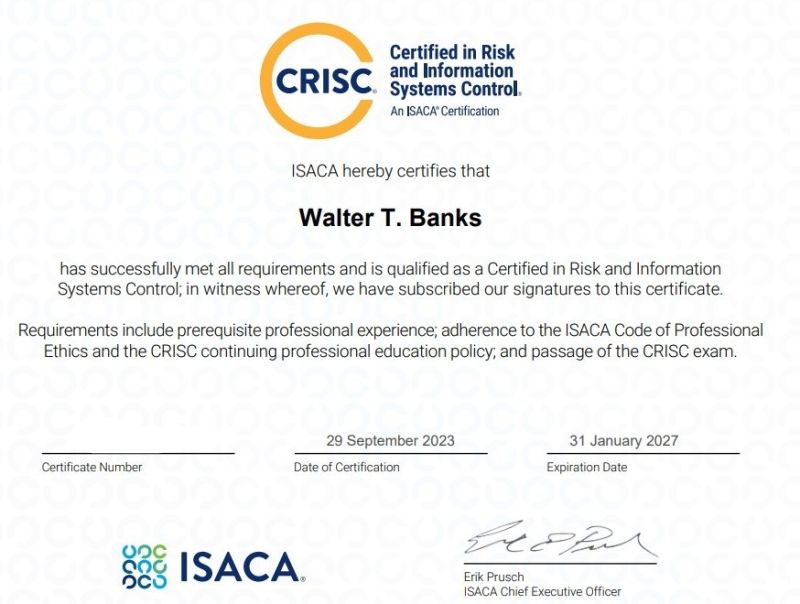
Trusted Cybersecurity Services. World-Class Training. Real-World Impact.
Train Your Team: Get Quote
Certified in Risk and Information System Control (CRISC) certification training program at InfosecTrain is developed for those professionals who identify and manage the enterprise risks by implementing information system controls. The training will help you understand the impacts of IT risks and gain technical expertise in implementing proper information security controls to confront the challenges posed by these risks.

You'll receive an official certificate upon successful course completion.
The CRISC Certification Training with InfosecTrain equips IT professionals to tackle the unique challenges of enterprise risk management, preparing them to serve as strategic partners within their organizations. As the industry’s leading certification in risk management, CRISC provides a rigorous, up-to-date evaluation of professionals’ expertise in managing risk and implementing IS controls. By earning CRISC, individuals demonstrate their ability to assess, understand, and address business risks effectively, empowering enterprises and financial institutions to strengthen their risk resilience and safeguard their operations.

DOMAIN 1: GOVERNANCE – 26%
A: ORGANIZATIONAL GOVERNANCE
B: RISK GOVERNANCE
DOMAIN 2: IT RISK ASSESSMENT – 20%
A: IT RISK IDENTIFICATION
B: IT RISK ANALYSIS AND EVALUATION
DOMAIN 3: RISK RESPONSE AND REPORTING – 32%
A: RISK RESPONSE
B: CONTROL DESIGN AND IMPLEMENTATION
C: RISK MONITORING AND REPORTING
DOMAIN 4: INFORMATION TECHNOLOGY AND SECURITY – 22%
A: INFORMATION TECHNOLOGY PRINCIPLES
B: INFORMATION SECURITY PRINCIPLES
| Certification | Certified in Risk and Information Systems Control |
| Exam Duration | 4 Hours |
| Number of Questions | 150 |
| Exam Pattern | Multiple Choice |
| Passing Marks | 450 out of 800 |
| Languages | English, French, German, Hebrew, Italian, Japanese, Korean, Spanish, Turkish, Chinese |
Join the next generation of security professionals with our industry-leading training programs
Unfilled positions projected by 2025 across all industries
Financial impact for organizations without proper security
Companies hiring our graduates
Our certified professionals are sought after by leading organizations
Organizations prioritizing cybersecurity training
Increased training budgets
High demand for security professionals
High demand for security professionals
High demand for security professionals
High demand for security professionals
High demand for security professionals
High demand for security professionals